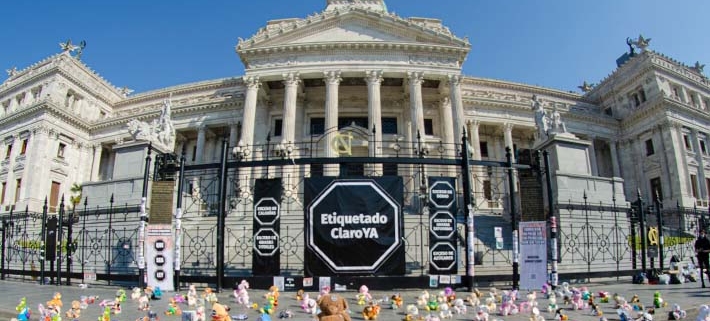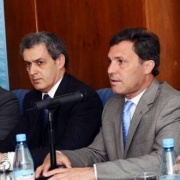Front labeling law: delays and questions
Faced with the excessive delay due to the enactment of the front warning labeling law in the Chamber of Deputies, we submitted requests for information to the Anticorruption Office and the Transparency Office of the lower house in order to determine the potential existence or non-existence of conflicts of interest that could be affected to its sanction.
“Below, we offer a google translate version of the original article in Spanish. This translation may not be accurate but serves as a general presentation of the article. For more accurate information, please switch to the Spanish version of the website. In addition, feel free to directly contact in English the person mentioned at the bottom of this article with regards to this topic”
Throughout the debate on the front labeling law, it has been possible to glimpse cases of legislators who have adopted many of the narratives used by the food industry to obstruct or prevent the sanction of the regulation. For example, statements regarding the need to previously harmonize with Mercosur, the creation of technical barriers to trade, the demonization of food, the impact on jobs, among others. These arguments are characterized by being devoid of scientific evidence and lacking normative support. Well, far from being motivated by a public health interest, they are aimed at protecting the economic interests of the sector.
The bill has been in the Chamber of Deputies for almost a year and if it is not dealt with this year, it will lose parliamentary status. Faced with the questions that arise regarding the possible reasons that delay its approval, the potential existence of conflicts of interest in those who make up the Chamber, is presented as an unknown that deserves to be investigated and made visible by civil society organizations.
The Argentine legal system provides for a set of ethical principles and standards that the authorities are obliged to respect in order to guarantee that the public function is exercised in an integral and transparent manner. Among these rules, there is the regime of conflicts of interest, which establishes a series of measures and restrictions that are intended to prevent those who exercise public functions from being affected by their impartiality -or independence of criteria-, by putting their interests first. private over the public interest.
Based on this legal framework of transparency and in exercise of the right to petition the authorities, on September 6, we presented two requests for information: one, before the Anti-Corruption Office and another, before the Office of Transparency and Access to Information Public of the Chamber of Deputies of the Nation.
In this way, we request the affidavits of assets from legislators who have publicly and officially expressed themselves against the sanction of the law and which, to date, have not been published on official sites. Likewise, we request access to the list of meetings that these authorities – and their advisers – have arranged, in order to determine if there were meetings with the food industry where agreements that are affecting their impartiality have been generated, as well as the list of gifts or donations. that they may have received on the occasion or occasion of their functions.
We will continue to investigate possible avenues for complaint and urge the Anti-Corruption Office to promptly respond to the request for information submitted. The presence of conflicts of interest affects the quality of the political system and the functioning of democracies. It generates a gradual disbelief in the population about the legitimacy of public decisions and gives rise to interests outside the common good to interfere in the processes of public policy making. Making visible generates awareness in the public and is the way so that these practices are no longer legitimized.
More information
Authors
Alma Colina
Maga Merlo Vijarra
Contact
Maga Merlo Vijarra, magamerlov@fundeps.org








